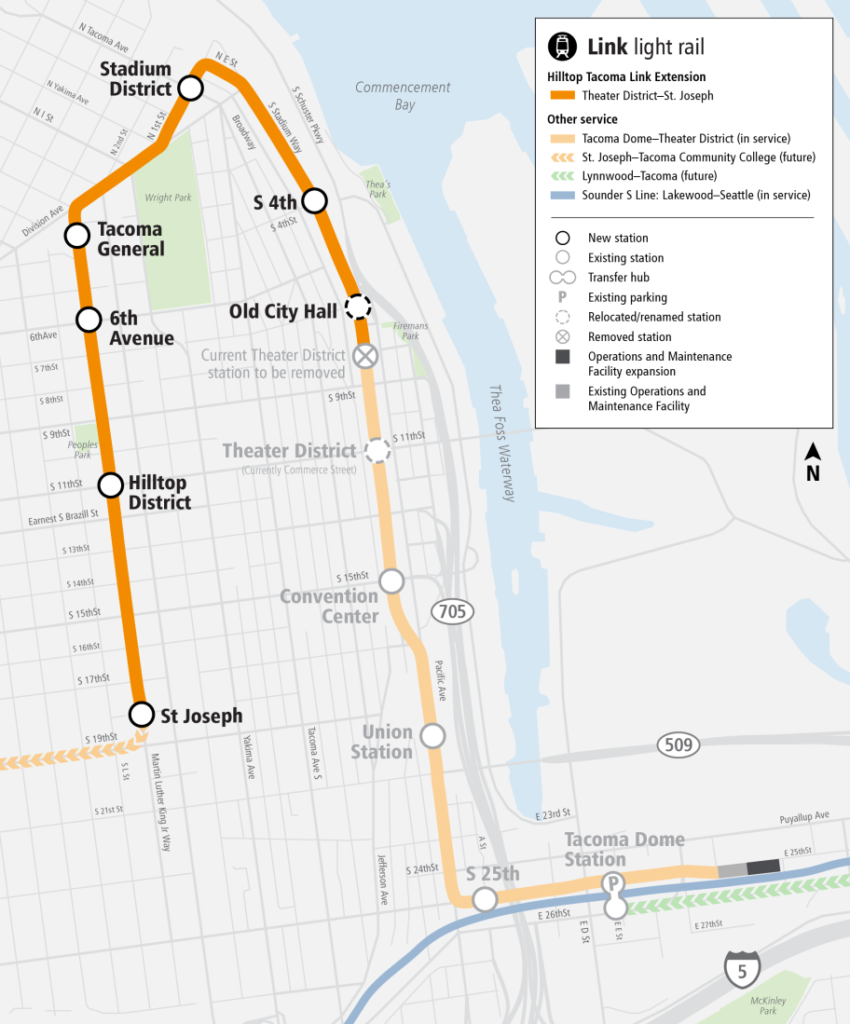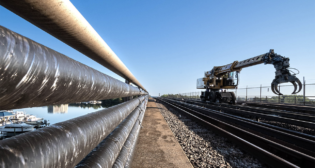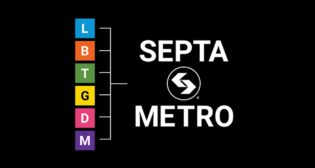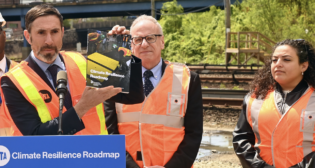
Transit Briefs: WMATA, NJ Transit, Minn. Met Council, SEPTA, Maryland DOT, Sound Transit
Written by Carolina Worrell, Senior Editor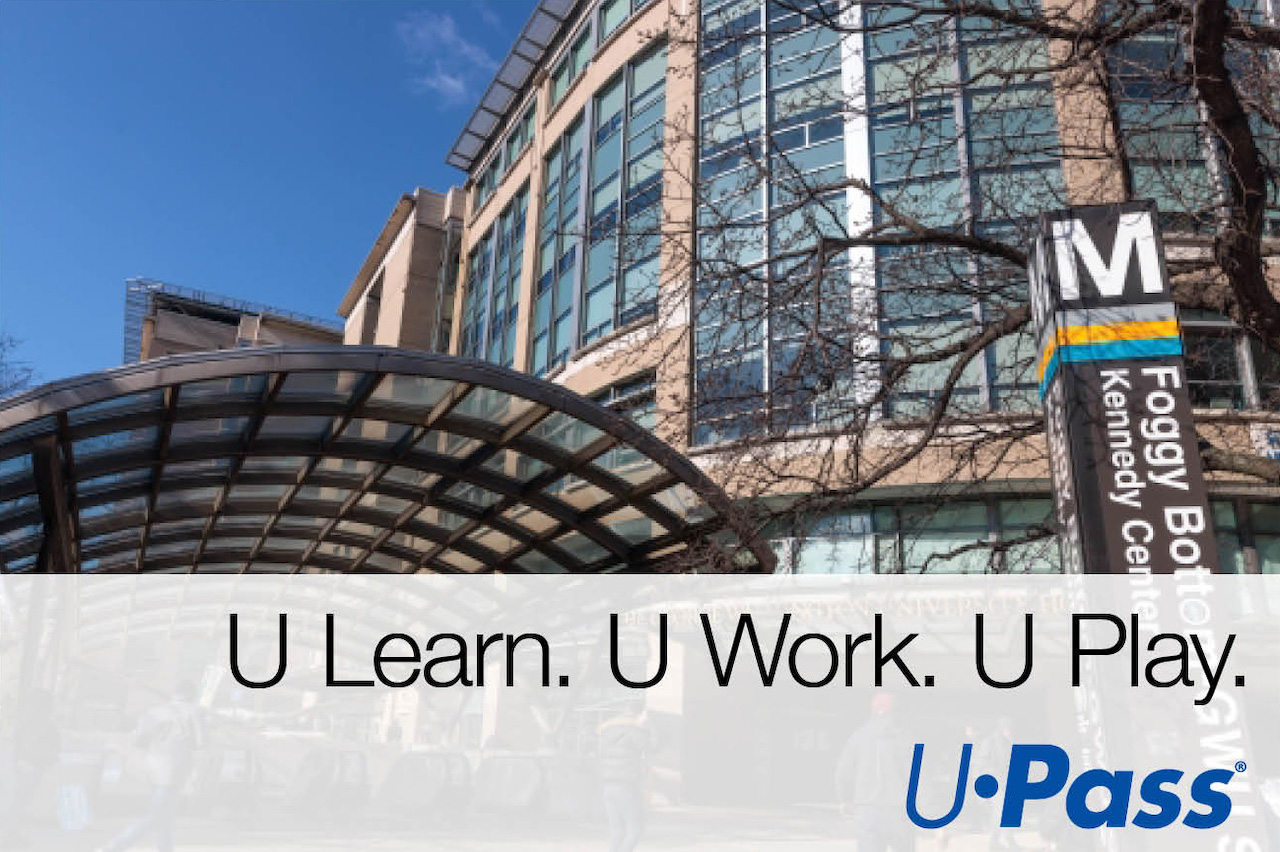
The Washington Metropolitan Area Transit Authority (WMATA) teams up with Virginia Tech on U-Pass program at campuses in National Capital Region. Also, NJ Transit Rail Operations celebrates 40 years of service with historic excursion and display; Minnesota’s Metropolitan Council resolves current funding deficit for Green Line Extension; the Southeastern Pennsylvania Transportation Authority (SEPTA) pilots contactless payments; Maryland Department of Transportation’s (MDOT) formal Federal grant application to address mobility and access challenges along the I-495 and I-270 corridors includes enhancement to the MARC Brunswick Line and Transit Oriented Development (TOD) opportunities; and service on Sound Transit’s Hilltop Tacoma Link Extension will open to passengers on Sept. 16.
WMATA
WMATA announced Aug. 21 that it has teamed up with Virginia Tech on the agency’s U-Pass program, which provides full-time students unlimited trips on Metrorail and Metrobus during the academic year at a significant discount.
According to the agency, the program will give students “convenient, affordable transit options” and coincides with Virginia Tech’s expansion in the region with the future Innovation Campus expected to open in 2024 next to WMATA’s new Potomac Yard Station.
Full time students at the Innovation Campus, Northern Virginia Center, Virginia Tech Research Center, and Washington-Alexandria Architecture Center— will receive a specially designed U-Pass with the Virginia Tech logo. The pass will be valid during the fall and spring semesters during the 2023-24 academic year.
The mobile U-Pass works just like a physical card at any of the agency’s 98 rail stations and all buses in Washington, D.C., Maryland, and Virginia. Students can also use UPass in Apple Wallet or Apple Watch to pay at the faregate or farebox and with Express Mode turned on there’s no need for Face ID, Touch ID or to unlock the device.
Virginia Tech joins more than 30 colleges and universities with campuses in the DC region participating in the U-Pass program. Since starting in 2016, U-Pass has provided tens of millions of trips to students.
“We welcome Virginia Tech to the U-Pass program which will help students save money and encourage a new generation of transit enthusiasts. Virginia Tech campuses are conveniently located near Metro stops,” said WMATA EVP and Chief Customer Experience and Engagement Officer Sarah Meyer. “U-Pass opens opportunities across the region for students to access jobs, internships, recreational activities and travel from two major airports and train service.”
“We are thrilled to introduce the U-Pass program in partnership with Metro, as it marks a significant milestone in our efforts to enhance transportation accessibility and sustainability for our students,” said Lynsay Belshe, Virginia Tech’s Vice President of Auxiliary and Business Services. “By providing access to Metro buses and trains, U-Pass not only offers a cost-effective transportation option, but also encourages our students to make eco-conscious choices. We are excited about the positive impact this program will have on reducing traffic congestion, improving air quality, and fostering a more sustainable community in the greater D.C. area.”
NJ Transit
NJ Transit and The United Railroad Historical Society of New Jersey are partnering to operate a special excursion train titled the “40th Anniversary Express” in honor of the agency’s Rail Operations’ 40th year of public service. The excursion train is part of a historic rail weekend that will take place Sept. 30 through Oct. 1.

The special excursion train on Saturday, Sept. 30 will travel between New York, Bay Head, and Hoboken, over sections of all three of NJ Transit’s major legacy commuter systems: the Pennsylvania Railroad, the Central Railroad of New Jersey, and the Erie Lackawanna Railroad. It will be hauled first by NJ Transit’s Pennsylvania Railroad heritage locomotive, wrapped in a historic livery to represent the many GG1 locomotives that hauled commuters in New Jersey from the 1930s to the 1980s. Participants will get to witness a recreation of the famous “South Amboy engine change,” which is a ritual that occurred at South Amboy station for decades until 1988. The second portion of the trip will be hauled by F40 diesels, the F40 being the first model locomotive purchased by NJ Transit as part of its major renewal in the agency’s early years.
Participants will also have a unique opportunity to travel around the Bay Head loop track and take a break for a catered lunch at the station. The trip, NJ Transit says, will then resume the journey back through Newark Penn Station for a great photo opportunity and then depart for historic Hoboken Terminal to end the day.

The following day, Sunday Oct. 1st, NJ Transit will display all its heritage decorated locomotives celebrating 40 years of NJT Rail Operations and its predecessor railroads. This event is open to the public and is free of charge.
“This special weekend is an amazing and fun way to honor NJ Transit’s rich history and gives the public an exclusive look at our railroad’s heritage,” said New Jersey Department of Transportation (NJDOT) Commissioner and NJ Transit Board Chair Diane Gutierrez-Scaccetti. “Here’s to another great 40 years ahead.”
“This historic rail weekend invites passengers, families, and enthusiasts to join NJ Transit in a unique experience that transcends time,” said NJ Transit President and CEO Kevin S. Corbett. “From the reenactment of the ‘South Amboy engine change’ to the nostalgic display of our heritage locomotives, this event will bring history lovers together to celebrate 40 years of rail service that has connected people and places across New Jersey.”
“We are incredibly proud to be partnered with NJ Transit for this event,” said URHS Executive Director Kevin Phalon. “As historians, we want to tell important stories. This trip will help us reach a large audience in a whole new way and will help bring attention to the incredible 40-year story of NJ Transit’s commuter railroad.”
Minn. Met Council
Minnesota’s Metropolitan Council, in partnership with Hennepin County, announced Aug. 21 that it has resolved the current funding deficit for the Green Line Extension Light Rail Transit Line, which will connect downtown Minneapolis with Eden Prairie, Minn.
According to the Met Council, the two entities have collaborated for several months to define funding sources and reached a resolution to close the remaining funding gap. A funding agreement has been reached where the Met Council and County will share equally in funding the gap in capital and startup costs. The funding agreement is subject to approval by both the Met Council and the Hennepin County Board.
The Met Council didn’t give a dollar amount when announcing the deal, but an auditor’s report late last year said the $535 million of the project was unfunded, according to an MPR News report.
The funding agreement has the Met Council responsible for the startup costs prior to the line opening and contributing 45% of the funds needed to complete the capital construction of the project. The Met Council’s share will primarily come from Federal capital formula program funds the next three years. Hennepin County will provide 55% of the capital costs from their transit sales tax.
A new project budget will be sent to the Federal Transit Administration (FTA) and adopted early next year (2024) following an FTA financial review of the project.
SEPTA
SEPTA has started testing out direct contactless payments on subways, trolleys and buses, according to a Billy Penn report.
According to the report, riders participating in the new pilot can leave their Key cards at home and instead pay their fares at validators using Apple Pay, Google Pay, Samsung Pay, or a contactless Physical Visa, Mastercard, American Express or Discover Card.
Being able to use mobile wallets or credit/debit card taps has been “long planned, requested and expected” on SEPTA, which has had a “fraught history” with its current electronic fare payment system, SEPTA Key, according to the Billy Penn report.
Launched late last month, the new contactless payment pilot will continue until SEPTA is “satisfied with the volume of daily transactions and confident that the system is ready to be rolled out for general public use,” spokesperson Kelly Greene told Billy Penn.
“Once the Transit pilot program comes to a close, the system will allow anyone to tap their contactless bank card at the terminal to pay their fare,” Greene said. “Regional Rail will follow early next year.”
According to Greene, 56 people are currently registered for the program. “The aim is to start with a small group of people and gradually grow the program, eventually expanding to 200 participants in total who are using a mix of different card types and brands,” according to the Billy Penn report.
Maryland DOT
MDOT announced Aug. 21 that it has submitted a formal Federal grant application to address mobility and access challenges along the American Legion Bridge, I-495 and I-270.
This application, MDOT says, “advances a critical piece of the Moore-Miller program for multimodal enhancements in the Washington region along the I-495 and I-270 corridors.”
Consistent with the Moore-Miller Administration’s Leave No One Behind agenda, Gov. Wes Moore emphasized that the program of activities envisioned for the corridors “identifies opportunities to be responsible to communities, improve transit and multimodal access and spur inclusive economic growth.”
To meet this charge, MDOT will advance the following transportation solutions alongside stakeholder engagement:
- Transit and Ridesharing. Maryland will advance transit options and transportation demand management enhancements along the American Legion Bridge, I-495 and I-270 corridors. The program will implement strategies such as express bus options in Maryland and connections to Virginia, ridesharing incentives and parallel transportation improvements including MARC Brunswick Line enhancements and Bus Rapid Transit.
- Transit-Oriented Development. MDOT will advance TOD opportunities throughout the corridors. Maryland has previously supported TOD planning and implementation efforts throughout the WMATA Metrorail system. As part of this program, Maryland will look to accelerate investment in key corridor TOD projects to unlock new developments that create sustainable and inclusive communities.
Sound Transit
After extensive quality and safety testing and 20 years since service first began on its initial segment, Sound Transit’s Hilltop Tacoma Link Extension of the T Line will open to passengers on Sept. 16.
The 2.4-mile Hilltop extension doubles the length of the T Line and includes seven new stations:
- St. Joseph (Martin Luther King Jr. Way south of South 17th St.)
- Hilltop District (South 11th and M.L.K. Way)
- 6th Avenue (at M.L.K. Way)
- Tacoma General (M.L.K Way at MultiCare Tacoma General Hospital)
- Stadium District (North 1st St. at North G St.)
- South 4th (at South Stadium Way)
- Old City Hall Station (Commerce St. north of South 7th St.)
According to Sound Transit, passengers will have access to Wright Park, major medical facilities and regional transit via the Tacoma Dome Station. Trains will run from 5 a.m. to 10 p.m., Monday through Friday; 7:20 a.m. to 10 p.m. on Saturdays; and 10 a.m. to 6 p.m. on Sundays. Monday through Saturday, trains will run at approximately 12-minute intervals from 6 a.m. to 8 p.m. and every 20 minutes all other times and Sundays.
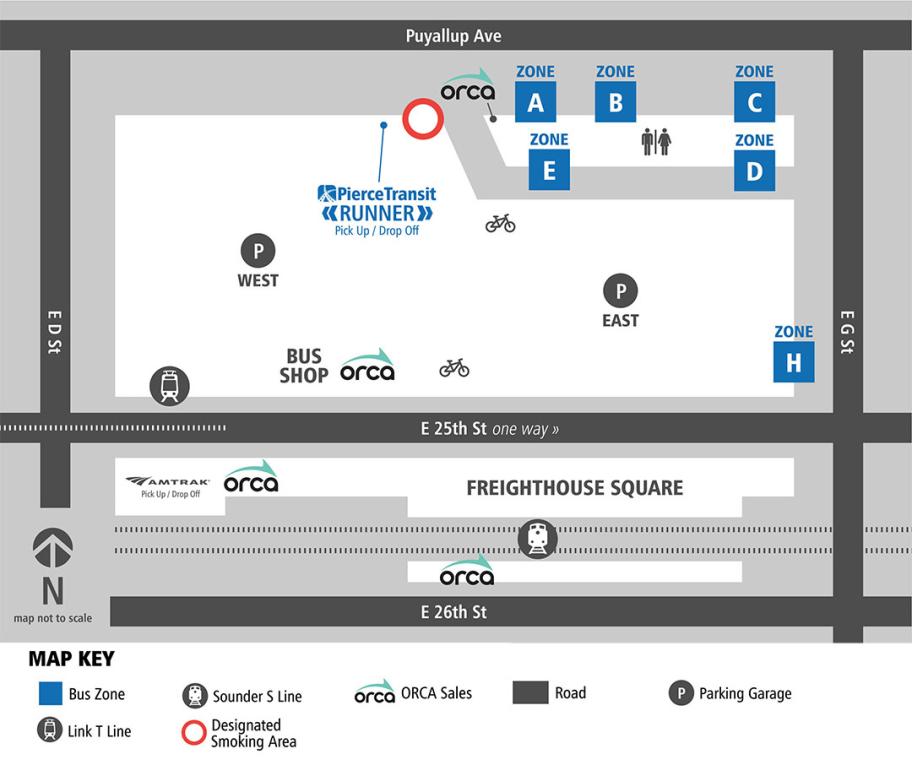
Sound Transit will begin charging fares via ORCA, paper tickets, and the Transit GO app ($2 per trip for adults; $4 day pass, or free for youth 18 and under) and will conduct a targeted ORCA LIFT reduced fare promotion and awareness campaign in Tacoma.
“Connecting more of Tacoma to our transit network, the Hilltop Tacoma Link Extension represents another step toward building a truly regional rail system, giving people flexibility as they travel for work, school and everyday activities,” said Sound Transit Board Chair and King County Executive Dow Constantine.
“Tacoma is so excited to see the opening of the much-anticipated Hilltop Link and we can’t wait for everyone in Tacoma to have an opportunity to ride,” said Sound Transit Boardmember and Tacoma Deputy Mayor Kristina Walker. “I look forward to celebrating a more accessible city and region, connecting to local transit and to supporting our local businesses that have stuck with us through construction.”
“The opening of the T Line Hilltop extension marks the first of a series of light rail openings scheduled over the next several years that will connect more people within their local communities and the greater Puget Sound region,” said Sound Transit CEO Julie Timm. “Sound Transit is proud of and thankful for the local teamwork and regional partnerships that continuously collaborate to build and operate our regional mobility network.”
